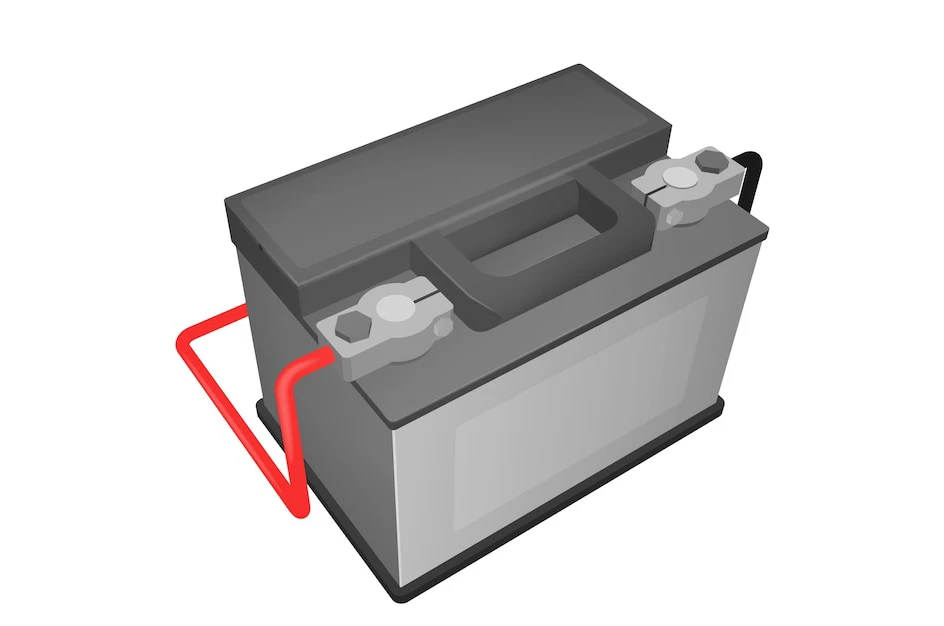The early gel lead-acid batteries developed by Sonnenschein (Germany) in the 1950s gained popularity in the 1970s. By mixing sulfuric acid with a silica gelling agent, the liquid electrolyte was transformed into a semi-solid paste, making the gel battery maintenance-free. In the early 1980s, AGM technology emerged, offering similar performance to gel batteries but with slightly different characteristics to meet specific market needs. Gel batteries are commonly used in both large and small UPS systems, while AGM batteries have carved out a market for starter and deep-cycle applications. Both gel and AGM batteries are part of the valve-regulated lead-acid (VRLA) family, eliminating the maintenance requirements of traditional flooded lead-acid batteries.
1. What is the BU-201b Gel Lead-Acid Battery?
The BU-201b gel lead-acid battery is a type of valve-regulated lead-acid (VRLA) battery that uses a gel electrolyte instead of traditional liquid electrolyte. The gel electrolyte is formed by mixing sulfuric acid with silica, creating a gel-like substance that enhances the stability of the battery’s internal structure.
- Working Principle: The gel electrolyte forms a solid-state gel inside the battery, immobilizing the electrolyte while allowing free movement of ions to facilitate electrochemical reactions.
- Structural Characteristics: The positive and negative plates of the BU-201b battery are enveloped by the gel electrolyte, eliminating free liquid and ensuring a sealed design.

2. Key Features of the BU-201b Gel Lead-Acid Battery
Thanks to its unique design, the BU-201b gel battery outperforms traditional lead-acid batteries in several aspects:
2.1 High Safety
- The gel electrolyte is resistant to leakage, even if the battery casing is damaged, making it ideal for applications requiring high safety.
- Its sealed design minimizes gas emissions, reducing explosion risks.
2.2 Long Cycle Life
- The BU-201b battery typically lasts 2-3 times longer than traditional lead-acid batteries, making it suitable for applications requiring frequent charge and discharge cycles.
- The gel electrolyte reduces plate corrosion, extending the battery’s lifespan.
2.3 Deep Cycle Capability
- The BU-201b battery supports deep discharges (up to 80% depth of discharge), making it suitable for applications requiring long-lasting power, such as solar energy storage.
2.4 Maintenance-Free Design
- The gel electrolyte does not require periodic refilling, reducing maintenance costs and time.
- The sealed design prevents electrolyte evaporation, making it suitable for remote or hard-to-maintain locations.
2.5 Wide Temperature Adaptability
- The BU-201b battery operates reliably in both high and low-temperature environments, making it ideal for extreme climate conditions.
3. Main Applications of the BU-201b Gel Lead-Acid Battery
Due to its high performance and reliability, the BU-201b battery is widely used in the following fields:
3.1 Renewable Energy
- Solar Energy Storage: The deep cycle capability and long lifespan of the BU-201b battery make it an ideal choice for solar power storage systems.
- Wind Energy Storage: In wind power systems, the BU-201b battery efficiently stores electricity, compensating for wind energy fluctuations.
3.2 Industrial & Backup Power
- UPS Systems: The BU-201b battery is extensively used in uninterruptible power supply (UPS) systems, providing backup power for data centers, hospitals, and other critical facilities.
- Telecommunication Base Stations: Its maintenance-free design and wide temperature adaptability make it suitable for remote telecom stations.
3.3 Automotive & Marine Applications
- RVs and Marine Vehicles: The BU-201b battery’s high safety and deep cycle capability make it ideal for RVs, boats, and other mobile power applications.
- Electric Vehicles: It performs well in electric forklifts, golf carts, and other low-speed electric vehicles.
3.4 Consumer Electronics
- Power Tools: The BU-201b battery’s high energy density and fast charging capabilities make it a great power source for electric tools.
- Emergency Lighting: In emergency lighting systems, the BU-201b battery provides long-lasting, stable power.
4. Comparison: BU-201b Gel Lead-Acid Battery vs. Traditional Lead-Acid Battery
| Feature | BU-201b Gel Lead-Acid Battery | Traditional Lead-Acid Battery |
|---|---|---|
| Electrolyte Type | Gel | Liquid |
| Safety | High (Leak-proof, sealed) | Lower (Risk of leakage) |
| Cycle Life | Long (500-1000 cycles) | Short (200-300 cycles) |
| Deep Cycle Performance | Excellent (Supports 80% DOD) | Average (Supports 50% DOD) |
| Maintenance | Maintenance-free | Requires periodic refilling |
| Temperature Adaptability | Wide (-20°C to 50°C) | Narrow (0°C to 40°C) |
| Cost | Higher | Lower |
5. Future Trends of the BU-201b Gel Lead-Acid Battery
Competition with Lithium Batteries
As lithium battery technology advances, the BU-201b battery faces challenges in energy density and cycle life. However, its cost advantage and high safety keep it competitive in specific applications.
Technological Innovations
Future improvements in materials (e.g., carbon additives) and design (e.g., plate structure optimization) may further enhance the BU-201b battery’s performance.
Green Recycling
The BU-201b battery’s lead-acid materials can be efficiently recycled, aligning with the circular economy trend.
6. Frequently Asked Questions (FAQ)
Q1: Can the BU-201b gel lead-acid battery replace traditional lead-acid batteries?
Yes, but the cost and application requirements should be considered. The BU-201b battery offers superior performance but comes at a higher price.
Q2: Does the BU-201b battery require a special charger?
Yes, it requires a compatible charger to ensure efficient charging and prolong battery life.
Q3: Is the BU-201b battery suitable for high-temperature environments?
Yes, it performs well in high-temperature conditions, making it ideal for extreme climates.
Q4: How long does the BU-201b battery last?
Under normal usage conditions, the BU-201b battery typically lasts 5-10 years.
Q5: Can the BU-201b battery be used in solar power systems?
Yes, its deep cycle performance makes it highly suitable for solar energy storage applications.
Conclusion
The BU-201b gel lead-acid battery stands out with its high safety, long lifespan, deep cycle capability, and wide temperature adaptability. It is widely used in renewable energy storage, industrial backup power, automotive, marine applications, and consumer electronics. Despite competition from lithium batteries, the BU-201b battery remains a strong contender in the market due to its unique advantages. If you are looking for a high-performance, reliable battery solution, the BU-201b gel lead-acid battery is definitely worth considering.


